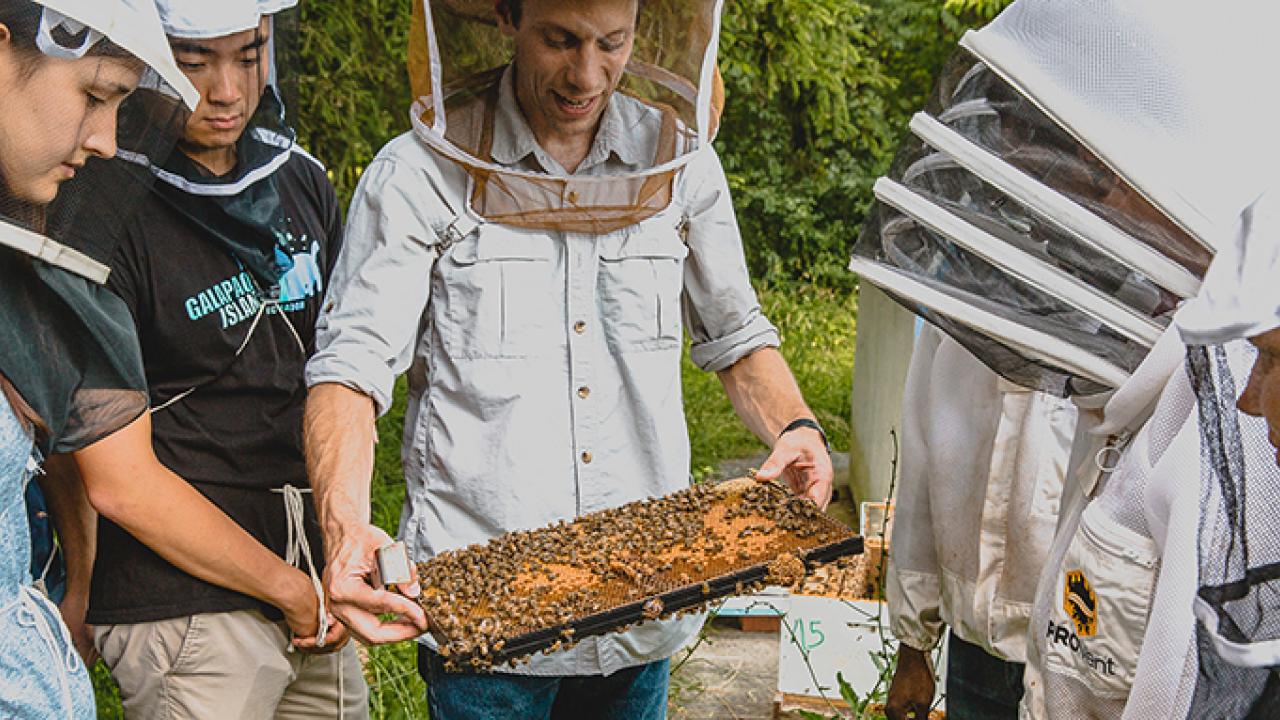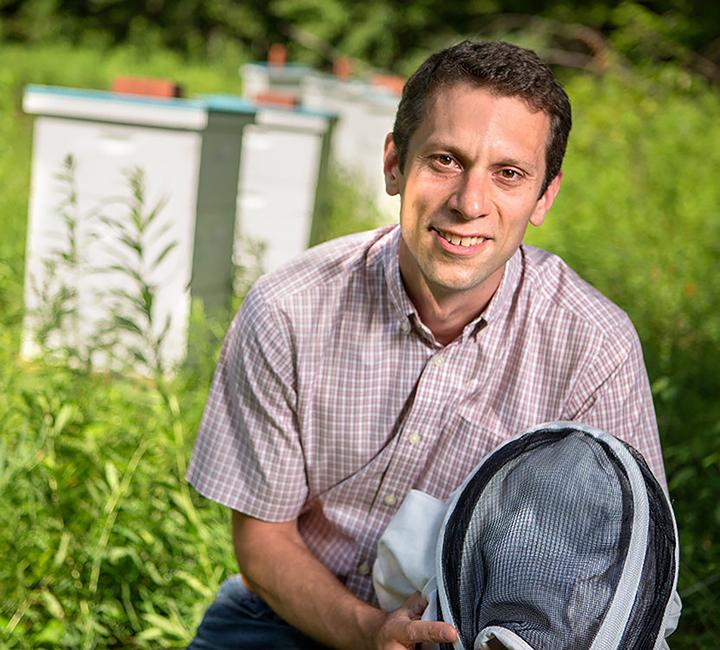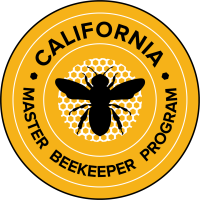
Pesticides and Bees: What We Know and What We Can Do
Noted Cornell Bee Researcher to Give Free Webinar Hosted by California Master Beekeeper Program

What do we know about the impacts of pesticides on pollinators? What steps do regulatory agencies like the US Environmental Protection Agency (EPA) take to safeguard our pollinators? Are protections from the EPA adequate or inadequate?
Those are some of the questions that will be answered when noted honey bee researcher Scott McArt of Cornell University presents a free guest webinar hosted by the UC Davis-based California Master Beekeeper Program (CAMBP) on Monday, Feb. 24 from 4 to 5 p.m. All interested persons can register on the CAMBP website here. (https://tinyurl.com/4r2uv279)
"This talk will dig into my team’s efforts to synthesize the science on this topic while interacting with regulatory agencies, beekeepers, farmers, and the pesticide industry," said McArt, an associate professor of pollinator health who helps run the Dyce Lab for Honey Bee Studies at Cornell University. "The talk will also describe some attempts from industry to misinform the public, explain why these attempts occurred and their effectiveness, and how evidence-based legislation on this topic can potentially be improved via public engagement."
McArt's presentation is especially important given the unprecedented overwinter bee losses this year, CAMPB officials said.
McArt said he is particularly interested in scientific research that can inform management decisions by beekeepers, farmers, regulatory agencies, and the public. Research in the McArt lab focuses on the impact of pesticides, pathogens, and management practices on the health of honey bees and wild pollinators.
The Cornell bee researcher writes a monthly column, Notes from the Lab, for the American Bee Journal. He summarizes scientific publications for a non-scientific audience. "The goal is to make the emerging pollinator health science more approachable and relevant to beekeepers," he says.
McArt also coordinates beekeeping workshops, such as "Introduction to Honey Bee Queen Rearing" and "Honey Bee Biology and Disease Management for Veterinarians" and engages with growers regarding pesticide risk to bees and creating pollinator-friendly habitat. He is featured in a YouTube "Inside the Hive" podcast, titled "Varroa Mites in Australia and Pesticides Misinformation - Dr. Scott McArt."

In May of 2022, in a seminar to the UC Davis Department of Entomology, McArt emphasized that "The use of synthetic chemical pesticides is central to current agricultural practices worldwide," but questioned "What is the cost to wildlife via non-target exposures?"
When asked "What gets you out of bed in the morning?" during a new faculty interview, he responded "Most of the factors contributing to declines in bee health (pesticide exposure, lack of floral resources, disease, inadequate management practices) are preventable. With targeted research efforts and educated stakeholders, regulatory agencies and public, we can make a difference."
Pollination by managed honey bee colonies adds at least $18 billion to the value of U.S. agriculture annually through increased yields and superior-quality harvests, according to the USDA-ARS (Agricultural Research Service). "Major factors threatening honey bee health can be divided into four general areas: parasites and pests, pathogens, poor nutrition, and sub-lethal exposure to pesticides. In reality though, these factors tend to overlap and interact with one another, which complicates issues. In addition, there are other issues that have impacts on honey bee health such as the narrow genetic base of honey bees in the United States."
McArt received his doctorate in entomology (2012) from Cornell University and completed postdoctoral research at the University of Massachusetts, Amhurst. He holds a bachelor's degree in environmental and evolutionary biology (2001) from Dartmouth College, and a master's degree in biological sciences (2006) from the University of Alaska, Anchorage.
CAMBP, which disseminates science-based beekeeping information through a network of organizations and trained volunteers, was founded in 2016 by Elina Lastro Niño, associate professor of Cooperative Extension and a member of the faculty of the UC Davis Department of Entomology and Nematology. She serves as the director, and Wendy Mather and Kian Nikzad are the co-program managers. On its website: "CAMPB is a continuous train-the-trainer effort. The CAMBP’s vision is to certify Honey Bee Ambassador, Apprentice, Journey, and Master level beekeepers so they can effectively communicate the importance of honey bees and other pollinators within their communities, serve as mentors for other beekeepers, and become the informational conduit between the beekeeping communities throughout the state and UC Cooperative Extension staff."
